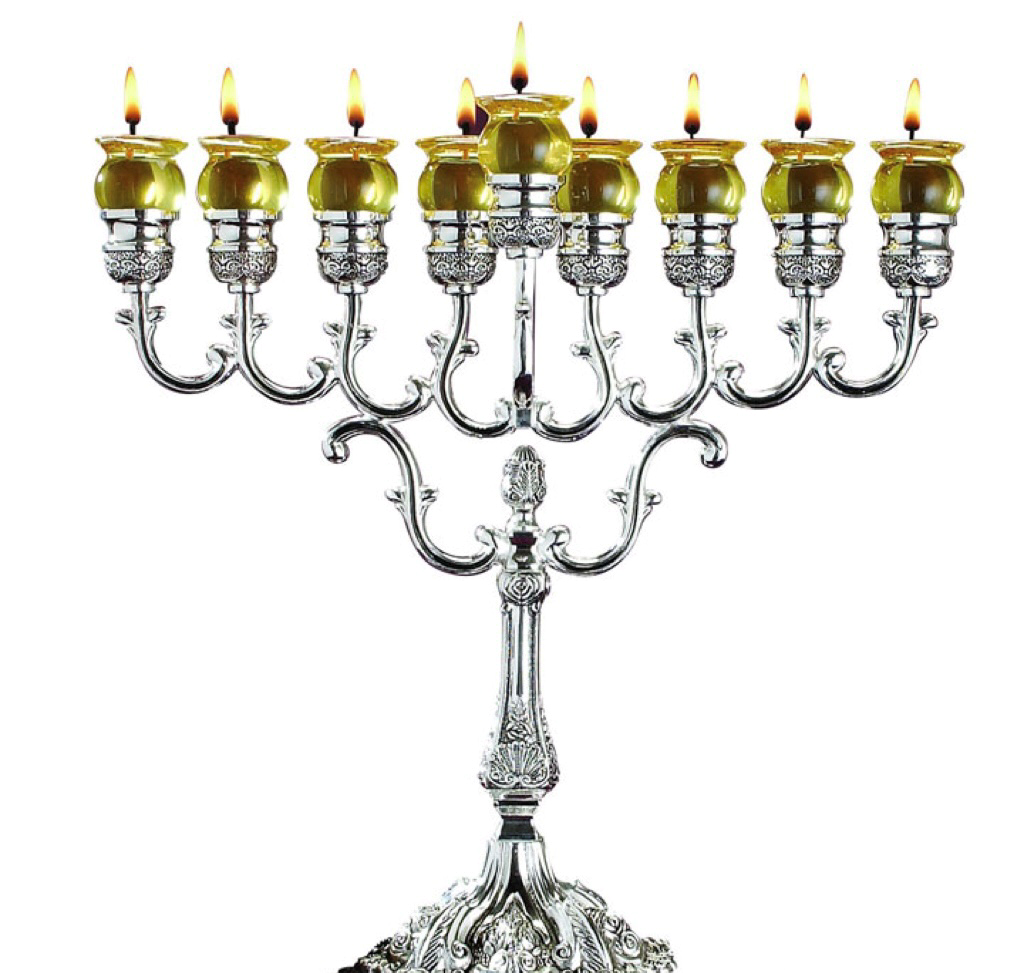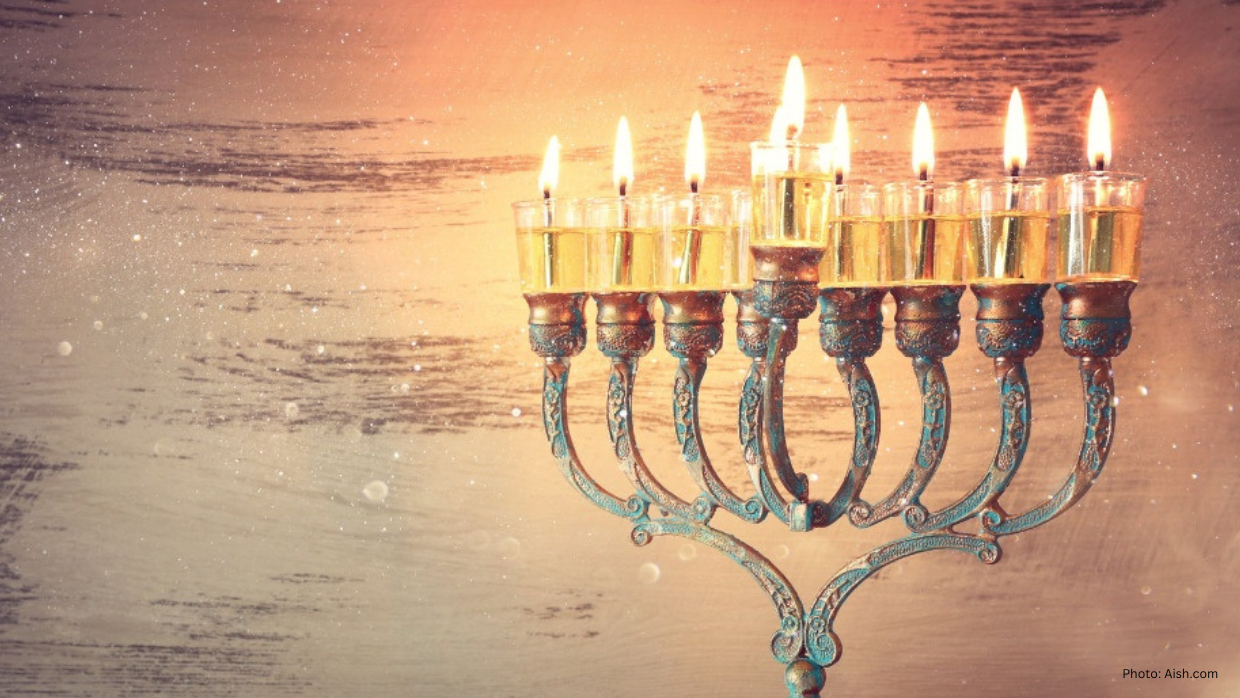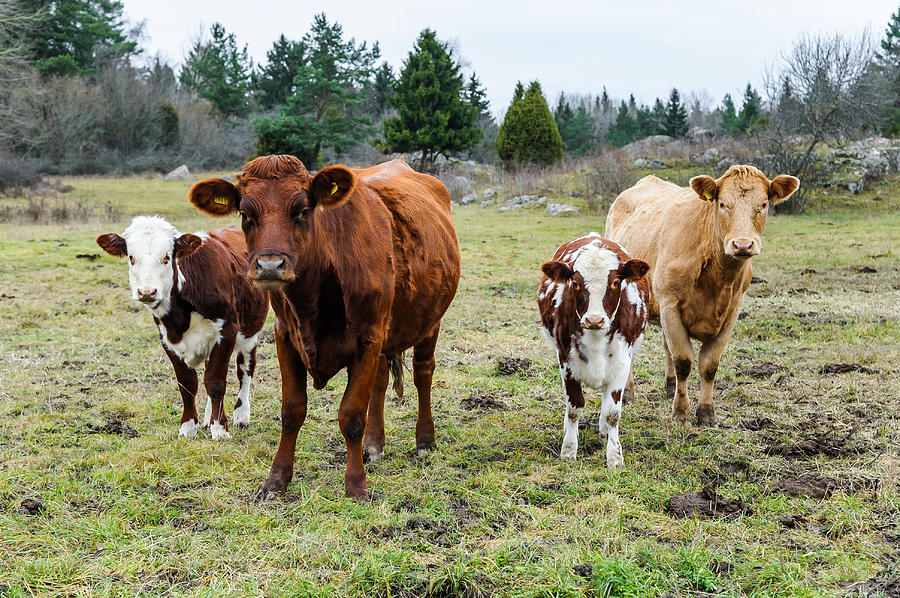The Number Eight
It is interesting that the root of the word shemen, oil, is the same as shemonah, eight. Is it a coincidence, then, that we celebrate eight days of Chanukah due to the oil that lasted eight days? Of course not! The number eight has great significance. It is considered I’ma’alah min hateva, higher than the normal physical world – supernatural. Seven symbolizes nature – the world was created in seven days. But eight is greater, more spiritual, elevated above nature. We see this clearly with bris milah (circumcision). When a baby boy receives his circumcision on the eighth day, he becomes more than a physical human; he becomes a holy and lofty Jew!
The pach shemen (container of oil) was much more than a simple container of oil. It was a container of hope, a tiny spark of holiness meant to reignite the pure spirituality of Jews in order to overcome the dark, impure and defiled world that the Greeks imposed upon them. When the Jews found one little container of pure oil, they saw that there was still hope for spirituality, for holiness. But when the oil lasted for eight full days, they heard the message loud and clear: Even with one tiny spark of holiness, Judaism will thrive! All one needs is a spark to rebuild and replace all that was lost.
In Al Hanissim we say: The many [given into] the hands of the few. “The many” refers to the mentality of Greece – more and more materialism, non-stop pleasure, and a life full of endless amusement and immorality. On Chanukah, this was conquered by “the few,” the Torah mentality of being mistapek bamu’at, satisfied with less. We too must focus less on our materialism and more on our neshamos (souls), our spirituality, and on becoming holy, spiritual Jews! (Torah Tavlin)
Chanukah and Praying for the Sick
The Sefer Imrei Noam Al HaMoadim brings down a beautiful thought: The Gematria (numerical value) of the phrase להדליק נר חנוכה, to kindle the Chanukah light, equals the Gematria of מלך רופא נאמן, the king [Hashem] is the faithful Healer! We see from here that Chanukah is an auspicious time to pray for refuos, recovery of the sick.3
The Nature of Greece
I would like to share with you two ideas on how the name יון (Greece) epitomizes the nature of the Yevanim at the time of Chanukah. Rav Zev Leff shlita explains that Yavan spelled in reverse is the word נוי, beauty, hinting to the primary focus and the concern of the Yevanim. Rav Ephraim Wachsman shlita says that Yavan is spelled י,ו,ן hinting to their stealth and conniving. Initially, Yavan (representing secular anti-Torah philosophy) sucks a person in, but to a small degree like the letter Yud ( (י, then he is pulled into a greater degree, like the letter Vav (ו). Finally, before one realizes what had happened, it brings the person all the way down like the letter Nun(ן) , to the point where it is difficult to emerge.3
Rav Yitzchok Fingerer shlita explains that Yosef faced a similar challenge. Perhaps that’s why his name (יוסף) begins with the same letters as Yavan the Yud (י) and the Vav ( (וbut then it stops and there is a Samach (ס) which is closed. symbolizing the fact that Yosef was able to restrain himself. The Samach is followed by a Fey ((ף which represents the tzaddik (holy person) being able to slightly unravel and impact his surroundings.
As Rabbi Yisroel Salanter famously said, the first time a person sins he regrets it, the next time it is a little easier to sin, and finally it becomes so ingrained in him that doing the sin becomes like doing a mitzvah![2]
[2] Based off Inside Chanukah








